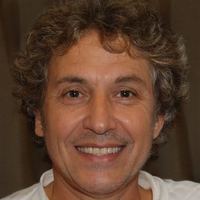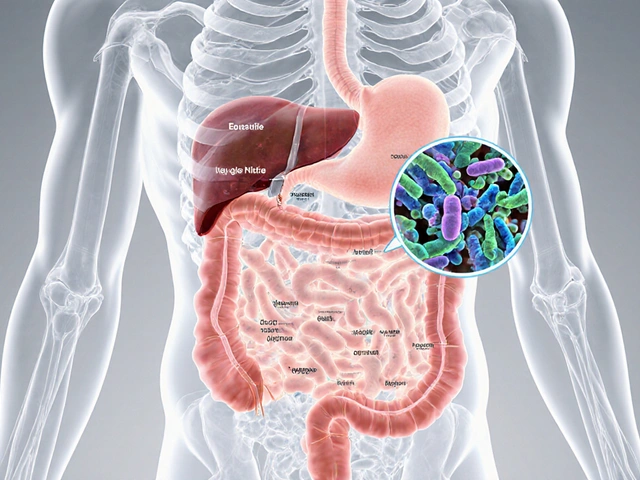Defining Health Anxiety: Your Mind Matters Too
As the great Mark Twain once said, "I've had a lot of worries in my life, most of which never happened". Now replace 'worries' with 'health fears' and you've captured a pretty accurate definition of health anxiety. This troublesome psychological phenomenon, also referred to as 'illness anxiety', can take a significant toll on a person's mental health, reducing the quality of their life and in extreme cases, leading to debilitating fear and avoidance behaviours.
And trust me, I'm not quoting Twain here just because I love a good quote (although Marjorie, my daughter, always chastises me for my obsession with them). It's because health anxiety is a pressing issue for many of us, whether we recognize it or not. So let's delve a little deeper into what 'health anxiety' means and how it manifests itself in the human mind.
The Anatomy of Health Anxiety: Characteristics and Symptoms
Like that pesky mosquito buzzing around your ear while you're trying to enjoy a summer barbecue, health anxiety is persistent and annoying. It creeps in quietly, causing individuals to misinterpret normal or, at most, innocuous physical symptoms as a signal of a severe illness. Do you ever feel a twinge in your stomach and immediately despair over an impending appendicitis? Or perhaps you notice an unusual mole and straight away forecast a future filled with dermatological doom? Well, that’s health anxiety playing its wicked tricks on your mind.
Now, let's not confuse this with the standard worry most of us occasionally feel about our health. That’s pretty normal in my book. It’s when this concern starts to interfere with your daily life, when it dominates your thoughts and dictates your actions, that's when we're dealing with health anxiety.
Between the Ears: The Psychology of Health Anxiety
The riddle of health anxiety lies within the labyrinth of our mind. Our thinking patterns, beliefs, and attitudes play a pivotal role in facilitating or fueling health anxiety. It's like the time when I mistakenly believed a "pigeon invasion" was imminent because a few had nested near my apartment. Ridiculous, it seems in retrospect. However, at that moment, my belief system dictated my perception of reality.
In much the same way, the psychological model proposed by Salkovskis and Warwick suggests that health anxiety stems from dysfunctional cognitive schemas about health and illness. These schemas can make us misinterpret benign bodily sensations, amplify health-related threats, and perpetuate anxiety-related behaviors.
Identifying Health Anxiety: Call A Spade A Spade
Identifying health anxiety can, ironically, be like self-diagnosing a physical ailment; intricate and nuanced. The DSM-5 - the diagnostic manual used by mental health professionals - categorizes health anxiety into two primary types: "Illness Anxiety Disorder" and "Somatic Symptom Disorder." Note, the distinguishing characteristics of both lie mainly in the focus of anxiety; while people without any significant symptoms fall into the former category, those with one or more somatic symptoms are typically placed in the latter. If you just thought "I need a degree to decipher that," then join the club! Plainly put, both disorders relate to health anxiety but manifest differently.
Despite this complexity, certain tell-tale signs can indicate health anxiety. Getting your blood pressure checked every time you pass a pharmacy, spending countless hours online reading about myriad diseases, constantly seeking reassurance from doctors and friends about your health- these can all be indicators of this issue.
Health Anxiety: Expert Treatment Options
Contrary to the popular belief that the only way out of health anxiety is through an infomercial-inspired miracle drug, there are science-backed, ethical ways to tackle this problem. Cognitive Behavioural Therapy (CBT) is among the most effective. This form of therapy helps individuals understand and change thought patterns that lead to harmful attitudes or feelings. In simple terms, CBT equips patients with tools to break the vicious cycle of anxiety, something like an emotional Swiss Army knife. Additionally, medications such as selective serotonin reuptake inhibitors (SSRIs) or benzodiazepines can also aid in reducing severe health anxiety.
Techniques like mindfulness, relaxation exercises, or yoga can serve as handy supplements to other treatments. These methods can help manage stress levels and keep 'overthinking' in check. Just remember, it's vital to reach out to mental health professionals who can help guide and support you through this journey. Hell, they've studied for years so that we don’t have to!
Practical Strategies to Overcome Health Anxiety: Tips and Tricks
Fighting health anxiety is like battling a ninja. It requires strategy, agility, and, often, a ninja of your own (in this case, a healthcare professional). However, don't despair! There are everyday tactics that can empower you in this fight. The first step is awareness. Recognize when you are slipping into a health anxiety rabbit hole and remind yourself of the misinterpretation your mind is likely making.
Secondly, challenge catastrophic thoughts. Ask yourself questions like, 'What's the evidence?' or 'What other explanations are there?'. Such questioning can help reinvent your thought process and shine a light on your cognitive distortions. Remember when I was convinced that I had grapefruit-sized tonsils even though the doctor had just told me they were a bit inflamed? Yeah, asking these questions could have saved me a sleepless night.
Living with Health Anxiety: A well-deserved salute
Living with health anxiety isn't a stroll in the park. Alright, it isn't even a jog on a treadmill. What’s more, those living with health anxiety deserve more than credit; they deserve recognition for their daily battles and victories, no matter how small they seem. Know this: You're not alone in this journey, and it doesn't define you. You're a multi-faceted, unique individual with more strengths than you know, even if you're currently staring down the barrel of health anxiety.
With patience, perseverance, and the right tools, it’s entirely possible to make peace with health anxiety, just as I eventually made peace with the pigeon population in my neighborhood. Today, I wake to the cooing of the very birds I once unfairly dreaded. So keep faith in the journey, lend an ear to the experts, and remember - your mind matters too!






